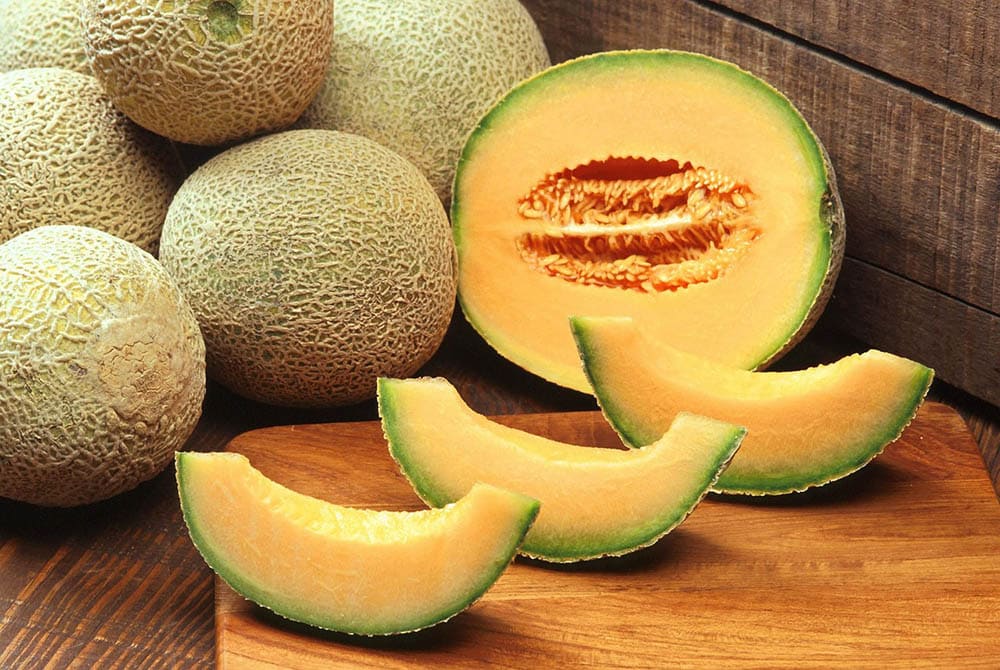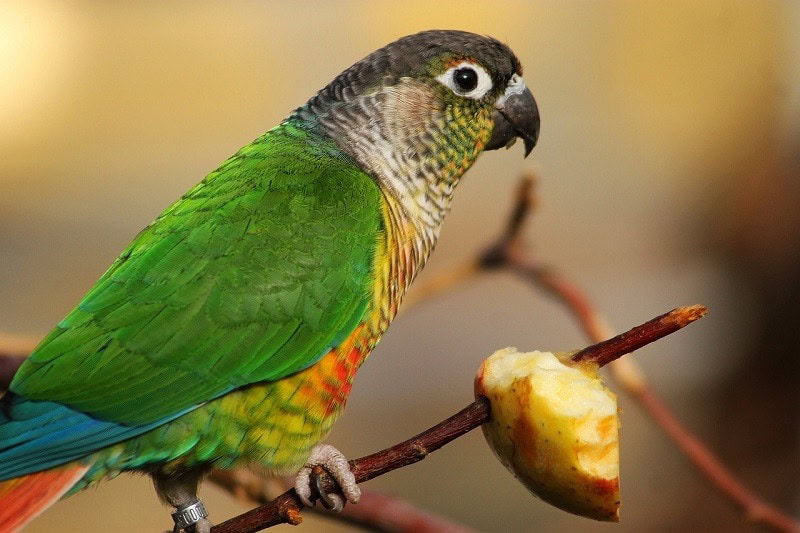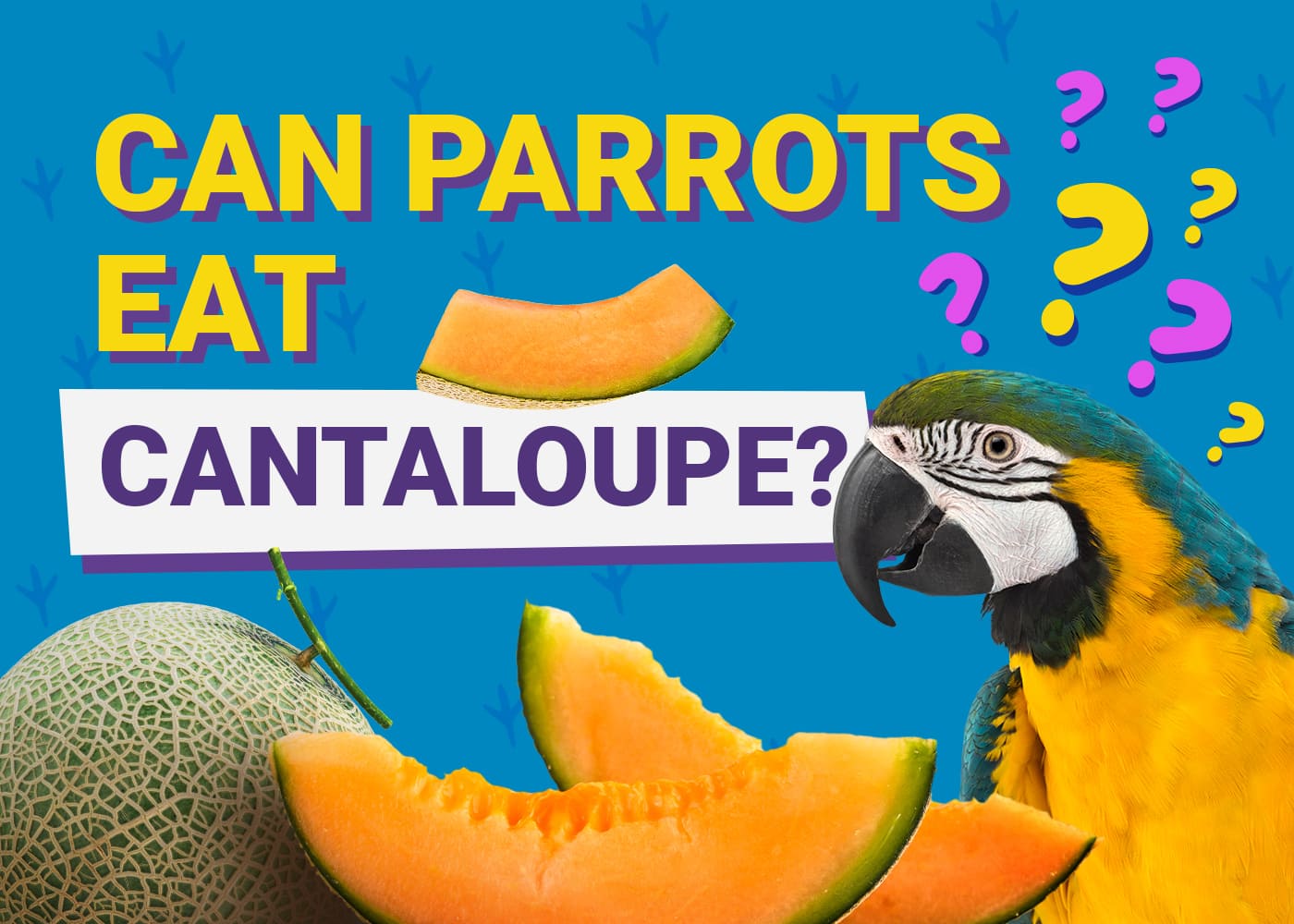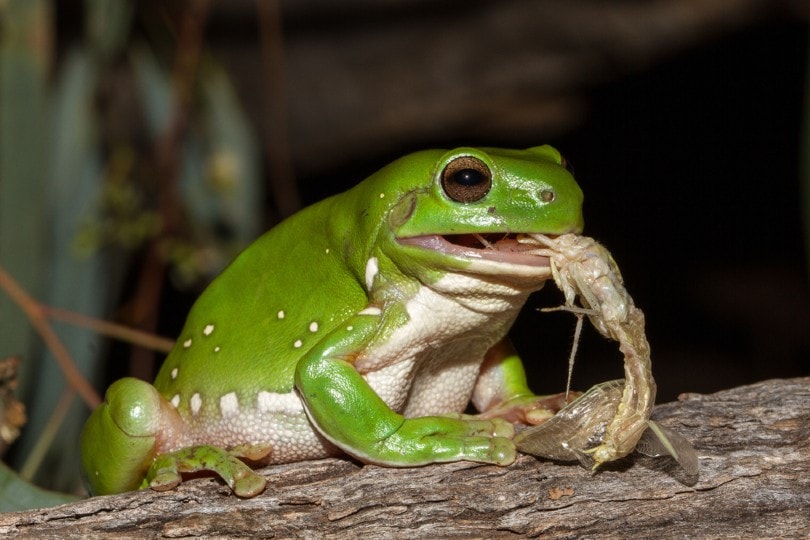VET APPROVED

The information is current and up-to-date in accordance with the latest veterinarian research.
Learn more »Click to Skip Ahead
Parrots love delighting in all sorts of goodies, from sweet, seedy treats to fresh veggies. But like any other creature, not every food is suitable for them. Even some fruits and veggies that might seem fine to you can make them very sick.
So, can your parrot eat cantaloupe? Yes, your parrots will likely love this delicious melon. It has several valuable nutrients that feed their bodies, but portioning is essential. Let’s find out more about this orange fruit.

Cantaloupe Nutrition Facts
Serving size: 1 cantaloupe
| Calories: | 150 kcal |
| Carbohydrates: | 40 g |
| Fiber: | 5 g |
| Sugar: | 45 g |
| Potassium: | 1,474 mg |
| Protein: | 4.6 g |
| Vitamin C: | 162 mg |

Do Parrots Like Cantaloupe?
Parrots love several delicious veggies and fruits. They particularly like melon because it is soft, easy to tear, and flavorful. They will indulge in the fleshy fruit, gladly tearing it into bits and devouring it.
The flesh and the seeds of the cantaloupe are edible for your parrot. Granted, every parrot is different. Some picky parrots might not enjoy the taste, but all you can do is offer it up to see if they are interested.
Benefits & Concerns of Cantaloupe for Parrots
Cantaloupe is packed with nutrients your bird needs to stay happy and healthy, including potassium, vitamins C and B6. It provides a kick of hydration, too. These nutrients can boost immunity, strengthen the body, and aid in digestion. While cantaloupe can definitely have some benefits, the amounts that you should feed won’t make a huge difference in their overall nutritional health.
The reason you’ll need to limit your parrot’s cantaloupe intake is because it is high in sugar. Too much sugar can have negative consequences for your bird. Parrots need a variety of other foods to deliver the right nutrients to their body.
How Often Can Your Bird Eat Cantaloupe?
Filling up on only cantaloupe or other sweet fruits will not only negatively increase their sugar intake, but it can also limit their intake of other essentials, potentially causing malnutrition and other health problems. Always make sure to moderate the number of fruits they eat. As a general rule, fresh fruits and veggies shouldn’t make up more than 20 to 40% of their daily intake.
It’s best to serve cantaloupe to your parrot roughly once per week. The amount will depend on the size of your bird.

How to Serve Your Bird Cantaloupe
When you serve your parrot cantaloupe, you should make it as easy for them to eat as possible. Even though the rind is non-toxic, it is tough to rip apart, so removing it may be best. For a pleasurable eating experience, cut and dice the fruit into sections.
You can put the pieces in a little container or serve each individually.
Other Fun Snacks for Parrots
You don’t have to stop at cantaloupe. Parrots will gladly consume many yummy treats. Here are just a few:
- Natural peanut butter
- Crackers
- Apple slices
- Carrots
- Strawberries
- Seedless grapes
- Pasta
- Sprouts
- Grains
- Popcorn
You can get creative by combining a medley of delicious goodness for your birds to enjoy. Your bird might pick out some favorites, making it easier to narrow down the items.
Whichever treats your parrot likes best, it’s important to remember to feed them in moderation. The majority of their diet should be made up of pellets, with fruits as minor additions.

Final Thoughts
So, now you know that parrots can indulge in a juicy chunk of cantaloupe. Always peel off the hard rind to make it easier to eat, and then serve the soft, fleshy parts of the fruit to your pet.
Because cantaloupe is so high in sugar, it should only be an occasional treat. However, it does provide some nutritional benefits and is a treat you should consider when making your parrot snack menu.
Related topics:
Featured Image Credit: Jason M. Fong, Shutterstock










